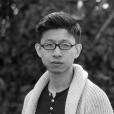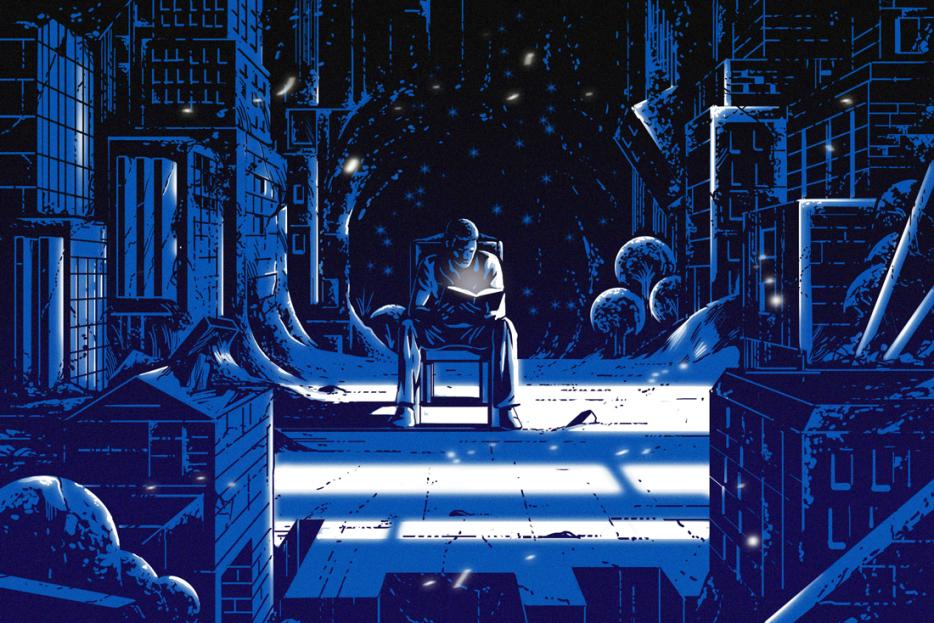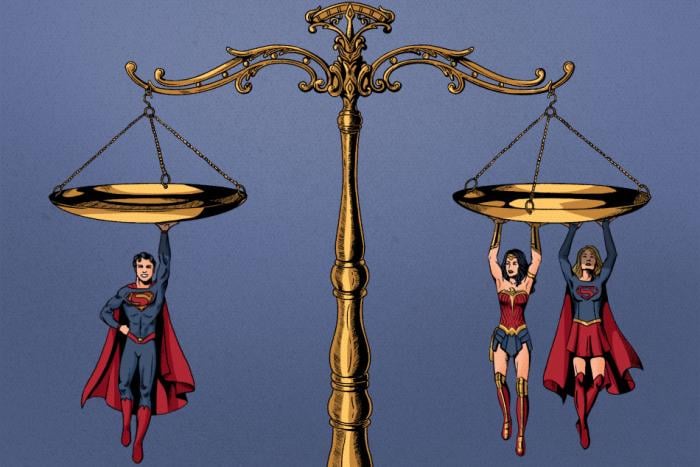When I was 20 years old, my father gave me a copy of Oswald Spengler's 1918 cult classic The Decline of the West. The book details the rise and fall of civilizations, but it’s really about inevitability, the endless march of existence and conflict, the supposedly deep-set differences between races that can never be reconciled—a pessimistic study of societal nature, popular among the likes of statesmen and warlords and people called Northrop Frye. (Honestly, dad, a gift card would have sufficed.)
My father had read Decline as a graduate student in China during the Cold War—before he had me, a few years before he uprooted his life for Spengler’s native Germany. I grew up just a four-hour drive from the author’s hometown of Blankenburg in central Germany, although unlike him, my family left the country when I was six, and I now live in Canada. There was an obvious connection between Decline and my father, made more relevant by how neatly Spengler’s ideas fit in the geopolitical landscape of his time, one marked by immeasurable gulfs and clashes of kingdoms. But why exactly my father gave it to me was unclear. He didn’t say and I didn’t ask. As much as I was curious, I also thought Decline had unnecessarily killed many good trees.
The book is known to be particularly dense and hard to follow. If David Lynch’s 1984 Dune had a book equivalent, Decline would be pretty close. (You might be asking, “Wasn’t Lynch’s film based on the Dune books?” I say it’s such a farce that it’s not.) Decline is an endless stream of new concepts and obscure references, introduced with hardly an introduction. (“Every thing-become is mortal”; the “soul-killing generation of plein-air and Haeckel”; or whatever “θεωρία” is—the man casually throws around untranslated Greek.) Every time you think Spengler is done—there’s more! I was grateful my father had given me only an abridged edition, although I’m not sure what it truly abridged. Moreover, it ran counter to my optimistic, cosmopolitan world view of nurture over nature, that borders are arbitrary and nothing inevitable. I didn’t finish it. I had never given up on a book, but Decline defeated me.
Ten years later, at the height of the death, chaos, and economic meltdown of the COVID-19 pandemic, I found myself unintentionally holed up in southern Germany. It’s a different part of the country from where Spengler and I grew up, but utterly Spenglerian nonetheless: The state of Bavaria, where I was, was where Spengler wrote and where he died. And I stayed in Bayreuth, a one-time Nazi centre seemingly connected to everything German, from Wagner to Nietzsche to the Holy Roman Empire—and of course, Spengler. That was where the popular author, under increasing pressure to back the Nazis, finally met Adolf Hitler in 1933 in a chat-with-the-chancellor that turned out mutually disappointing. Inexplicably, or perhaps very explicably, I was drawn to Decline, and I picked it up again upon returning to Canada.
Over video chat, I finally asked my father why, all those years ago, he wanted to punish me with Decline. He couldn’t say. Even ten years ago when he gave it to me, my father said, he had already forgotten everything about the book—not unlike, I imagine, how the mind subconsciously represses unpleasant memories. In a way I get that. Who really remembers everything they read in university? Yet if he felt he needed to pass Decline to his son, then it clearly left a mark. Reading the book, I felt somewhat connected to that forgotten moment of my father as a young man.
With the pandemic, it’s a connection in more ways than one. To me, a self-professed global citizen, the most jarring impact of the plague was the rising racism, stiffening and thickening borders and intensifying geopolitical competition—a reversal of post-Cold War globalization, a return to the world in which my father read Decline. I’ve come to think maybe all of this is indeed inescapable. This time, I finished the book, and I detected a prescience—not so much my father’s, but that of that inevitable, endless march of existence, perhaps acting through him. I like to think I now know why my old man gave me Decline.
*
“Decline” in The Decline of the West is a linguistic false friend. Spengler uses it to refer not to a collapse or a loss of global influence or military power, but merely a cyclical transition to a different state. That lifecycle is the gist of the book. Groups of humans begin as animals, “historyless,” Spengler writes, “of which the particular detail is as unimportant as the doings in a colony of beavers.” The groups of humans then mature into a Culture, which marches with a collective, singular “cosmic beat.” Decline says it is those Cultures, rather than individuals, that are the important organisms; it is the soul and essence of a people that manifests in its heroes and villains and pivotal events, not the other way around.
To Spengler, it is pointless to debate, say, the impact of the French Revolution; the French Revolution is the impact of the inevitable path of the Western people, and other Cultures all have similar uprisings at similar stages of their developments. Those indicate a turning point, Spengler writes, when a Culture exhausts its spiritual essence and starts focusing on money and military expansion, becoming what he calls a Civilization. When that Civilization exhausts its potential, it returns to the historyless form, its people no different from “a steppeherd of gazelles”—the Spenglerian circle of life.
There is no doubt a certain suspension of disbelief needed to appreciate Decline. The premise is itself the argument, and the author offers little evidence for the excessively arbitrary way he defines his Cultures or Civilizations. Why did Western Culture begin when it did and not a year earlier? Why are these few peoples part of the West and not the others? Ten years later, I found Decline no less difficult.
The book is also flush with all sorts of false friends beyond the capital-C “Culture” and “Civilization,” seemingly normal terms with specific, exclusively Spenglerian meanings. (Think you know “Epoch,” “Time,” “Space,” or any of another hundred or so everyday dictionary words? Think again.) Then there is the great presumption of knowledge the book has for the reader. Flip randomly to any page and marvel at sentences such as, “The temple of Poseidon at Paestum and the Minister of Ulm”—ah, yes, of course, I know some of those words. The book is definitely an acquired taste, not unlike the Chinese preserved-food century egg—to appreciate the deliciousness requires constant exposure to build tolerance for the flavour derived from ammonia and hydrogen sulphide. The 400-page abridged version of Decline is to be enjoyed only after you get past the first 300 pages.
Spengler was certainly both well-educated and proud of that fact, but he had published nothing before Decline aside from his doctoral thesis, which failed the first time because of insufficient references—a well-respected thinker, perhaps, but not the most effective communicator. He’s also just a weird guy in general, out of place among German writers of his time. Born in 1880 to a postal-secretary father who disliked intellectualism, Spengler lived a lonely existence off inheritance after his mother’s death, occupying his later life by collecting books and ancient weapons.
Reading Decline thus requires a great commitment of labour. The late Shamil Basayev, an Islamist separatist leader in the Russian territory of Chechnya who died in 2006, had said he devoured the book in one night. That claim is as believable as Donald Trump’s that he read Rage, the journalist Bob Woodward’s book about him, “very quickly,” also in one night. I myself took six months to read Decline, and I think I still understand only half of it.
Therein, though, lies Decline’s magic. The best-known Canadian fan, the aforementioned literary critic Frye, wrote of Decline: “If ... nothing else, it would still be one of the world's great Romantic poems”—a most apt description. Even if you don’t feel like navigating the thickness of Spengler’s argument and reasoning, you can easily feel the piercing intensity of his prose. In that way, a reader is inclined to absorb Decline in the same, much-criticized way Spengler himself conducted research for that title: through symbols and interpretation rather than objective analysis.
Thus, what many fans glean from the book isn't so much the Culture-Civilization cycle itself, or really any of the specifics of Spengler's argument, but a distilled, streamlined version of it: the pre-defined life-cycles of civilizations and the fundamental differences between them, each rigid like iron, and the painful insignificance of individuals and individual actions in the face of them. It’s a simple message, and that results in people’s projecting their own meaning onto it.
Indeed, Decline’s core tenets have rippled in all sorts of directions. The separatist Basayev, already influenced by a different powerful and hard-to-understand book, waged a destructive holy war like a Eurasian Osama bin Laden. The scholar Joseph Campbell wrote his own book analyzing religions and ended up popularizing the Hero’s Journey storytelling structure seen in nearly every film. Henry Kissinger, U.S. national security advisor and then secretary of state in the 1970s, was guided by Spengler during the Cold War and then gave a copy of Decline to President Richard Nixon.
It’s not unlike how Adam Ewing’s journal in Cloud Atlas spiralled through history and seeded revolution. Such books—first they transcend meaning, then they transcend time. And everyone takes away something completely different, born from who they are and how they were shaped.
*
I was born a little after the Berlin Wall had fallen, after the Soviet Union had collapsed. Kissinger, who never really took his Spengler-love to a fanatical level, had long left government service. The West danced to the tune of a new breed of thinkers such as Francis Fukuyama, who famously wrote The End of History and the Last Man, arguing the rivalry between major powers was finished, that there was in fact an end to the endless beating march. The West-led liberal international order and those who stand behind it believed countries like China and Russia could one day become, in their view, enlightened like them, ultimately converted. We could be “world citizens” in a “global village”—one happy family, the belief goes.
So began a new era of increasingly affordable travel, instantaneous communications, and intricate webs of supply chains that bound the world in a way previously unthinkable. Now, university students in Amsterdam and New Delhi not only speak the same English, but also get disappointed by the same Avengers movie and drunkenly puke out the same McDonald’s. In a way, this current concept of tolerance and celebrating cultural diversity was also born back then. And I grew up alongside that era, speaking three languages and straddling multiple borders, shaped by it and also shaping it—a child of my time, perhaps, in the same way Jenny Sparks, the electricity superhero born on January 1, 1900, was the “spirit of the 19th century” in D.C. Comics’ Stormwatch.
Then came the plague, and I saw my world crack. A slew of travel disruptions and dashed plans caused me to hole up in the town of 75,000 that is Bayreuth; my personal circumstance was a small representation of something bigger. Under the weight of the pandemic, travel and international supply chains were decimated as racism and nationalism rose. Countries scrambled for medical supplies as neighbour turned on neighbour.
On top of that is the rising geopolitical competition. Challengers to the West-led world order, China and Russia, have grown more aggressive—China in particular. Disinformation and intelligence attacks were and are rampant, underneath which runs an economic crusade as China restarts its economy while others are still shutting theirs down. All the while, on the world stage, China embarks on its face-mask and vaccine diplomacy to outshine a retreating United States that has become even more chaotic amid the pandemic. The November election of the next U.S. president Joe Biden and the American pharmaceutical company Pfizer’s announcement of a successful vaccine trial have given the world a lot of hope. But neither the Biden presidency nor the Pfizer vaccine has yet become reality—and the plague is still raging. Post-pandemic, both ethnic and national lines will only be more starkly drawn.
Spengler would say such conflict is a natural state of the world, and that the trend of optimism post-Cold War—that was the real anomaly. “Optimism is cowardice,” Spengler writes in his subsequent book Man and Technics. By themselves, the pandemic or the geopolitical shifts and conflicts of either today or any day would probably be insignificant to Spengler. At best they are like the French Revolution, being the impacts rather than impactful events themselves. But to Spengler they would also be elemental and primal, like the biting wind amid snowfall or the crash of beating tides. Optimism to Spengler is the refusal to accept the timeless swings of the pendulum. Conflict is inevitable.
Reading Spengler in a time of plague, I wondered if my optimism had been misplaced. I take for granted the current world’s widespread sameness and ease of passage, but this is the only world I know. Just some 100 years ago, as depicted accurately in the Cinemax series Warrior, a man born and bred in San Francisco’s Chinatown in the 19th century did not speak a lick of English. Maybe all this time, there had been no grand arc of humanity moving toward a better end—it’s all been just part of a cycle.
After all, the Russian leader who’s taken it toward its current confrontational path had had his world view shaped by the Soviet Union’s collapse. The West may have had optimism for Russia post-Cold War, but in the ruins of the old regime, Vladimir Putin was awakened. Fukuyama’s The End of History aged terribly, and he eventually changed his tune. Reading Decline, I recalled the ending of Alan Moore’s graphic novel Watchmen. A victorious Adrian Veidt, hell-bent on what he viewed to be his mission to save the world, says: “I did the right thing, didn’t I? It all worked out in the end.” Dr. Manhattan, an omnipotent being who can see past and future simultaneously, responds: “In the end? Nothing ends, Adrian. Nothing ever ends.” I’d never really grasped the significance of that. Then I did.
Those who recognize that concept of inevitability and unendingness are “men of race-quality,” Spengler writes, in step with the cosmic beats of their people. The term “race-quality” is controversial, to say the least, but it’s another one of those Spenglerian false friends. Race to Spengler is small-C cultural and never biological; being of race-quality is just one of two parts of a binary concept: you’re either in sync with the collective organism that is your Culture or Civilization, or you are not. Deep one night, it clicked: With my growing up across borders and constant travel and switching of the languages I speak, of course I view the world the way I do, and of course I found Spengler and the pandemic world’s deepening divisions jarring. I am not a man of race-quality. My father, however, is.
*
My great-grandfather on my mother’s side was a police chief in the Japanese-controlled north that in Spengler’s day was called Manchuria. When China took it back after the Second World War, he was put in prison. His daughter, my grandmother, never talked about him, and I know little of that side of the family beyond him. Chinese history is turbulent, marred with conquest, revolution, warlordism, and civil war. There are no family records I know of. Such is the way for most Chinese people. But my father’s side is different. That side of the family hails from near Beijing, tracing its lineage to Ming Dynasty power struggles, when the great games of high lords killed so many that people had to be brought in to repopulate the land. There is little information as to what specifically my forebears did. My father’s grandfather was a mom-and-pop businessman of little note. But my father’s ancestors were clearly important people at one point, given that his family records date back to a time when most people couldn’t read.
Ironically, most people today can’t read our family records either, which are in centuries-old Classical Chinese. My father is the exception. He is the only man I know who can read ancient texts. He himself doesn’t deem that spectacular, but he talks constantly about history, familial or otherwise, with such an intense interest that even his younger brother makes fun of it. There is “history” within my father—another one of those Spenglerian words. That’s not news to me, but I had never understood or even tried to process that fundamental element that makes my father tick. I know it only in the same way I learned my family history from my father—a piece of fact, a quantum of information, the significance of which is no greater than items on a restaurant menu. Reading Decline changed that.
I don’t think I will ever be a Decline fanboy like Kissinger or Basayev, and maybe I will forget this book like my father did. But reading it during the plague, for a moment, he and I transcended decades, almost becoming two of the same man separated by time.
It’s a strange feeling, to say the least. There’s the satisfaction of a connection forged, the feeling of firm feet crunching upon fallen leaves. I also felt as if I was regaining something lost, like realizing the distinct smell of home after a long trip away. But there was also a touch of sadness tugging at the edges. At first I couldn’t place the sensation. Only after finishing Decline did I realize what it was. The book made me appreciate the opposing side to my long-held optimistic world view—it was that Spenglerian cosmic beat within me, stirring like bone-ache ahead of the storm.
Why my father gave me Decline—perhaps there’s no why. Like the French Revolution, like the pandemic, like every other event in human history that we as participants may feel is significant—Spengler himself would say the gift of the book has no intrinsic meaning. That I would question my optimism and come to know the unending march of existence that is and always was—it was simply inevitable.






